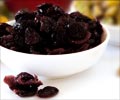Do prunes improve bone density? Eating prunes daily preserved bone density in postmenopausal women and may prevent osteoporosis.
- Osteoporosis is a bone disease that makes bones weaker and more prone to fractures
- Decreasing estrogen hormone in post-menopausal women increases the risk of osteoporosis
- Luckily, prune's anti-inflammatory potential might prevent this bone loss and supports healthy bones
Bone Health and Inflammation
In the United States, about 10 million adults over the age of 50 have osteoporosis and women are four times more likely than men to experience the condition. This is partly due to a decline in estrogen levels with the onset of menopause that results in loss of trabecular and cortical bone density.Dried Plums, Prunes and Bone Health: A Comprehensive Review
Go to source)
A new study explored the relationship between circulating inflammatory mediators and various measures of bone health, including bone density, geometry, and strength.
The study was conducted to establish the relationship between inflammatory mediators and bone outcome at baseline in women enrolled in the parent randomized controlled trial prior to the prune intervention.
Do Prunes Improve Bone Density?
Evidence from several observational studies suggests a link between chronic inflammation and osteoporosis and fracture risk. Looking at postmenopausal women, they began their research by exploring the relationship between biomarkers of inflammation and bone.The findings indicate that higher levels of inflammatory markers were associated with lower trabecular bone scores at the lumbar spine among the study participants – essentially the more inflammation, the poorer bone health.
These findings demonstrate that inflammatory markers are negatively associated with bone health in postmenopausal women, suggesting that inflammation might be an important mediator for postmenopausal bone loss and a potential target for nutritional therapies.
The estimated bone strength during a 12-month dietary intervention. Study participants were the same as those evaluated in the Penn State inflammation study discussed above.
The Role of Prunes in Modulating Inflammatory Pathways to Improve Bone Health in Postmenopausal Women
Go to source).
Previously, they demonstrated that consuming 5-6 prunes a day for 12 months resulted in preservation of bone at the total hip, a finding that was observable at six months and persisted through month 12.
In this second part of the randomized controlled trial, 3-D imaging of bone provided some additional info about the response of bone to consuming prunes daily. These latest findings indicate that prune consumption preserves vBMD and strength at weight-bearing tibial sites that are predominantly cortical sites.
Thus, prunes might be a promising nutritional intervention to prevent the rise in inflammatory mediators often observed as part of the aging process.
References:
- Dried Plums, Prunes and Bone Health: A Comprehensive Review - (https://www.ncbi.nlm.nih.gov/pmc/articles/PMC5409740/)
- The Role of Prunes in Modulating Inflammatory Pathways to Improve Bone Health in Postmenopausal Women - (https://academic.oup.com/advances/article-abstract/13/5/1476/6492076)
Source-Medindia
















